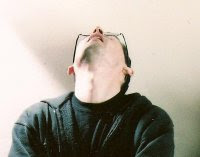Directed by Andrew Jarecki
As a simple, straight-forward look at something horrible that happened in the eighties on Long Island, this movie is very entertaining and painful. But I’m not sure what the director’s larger point was; he seems to have gotten incredibly lucky in finding a gripping story accompanied by a crapload of home video footage to tell the story with, apparently with the full cooperation of the Friedman family. But the footage isn’t used with a lot of complexity. An early scene in which David Friedman talks to a video camera and with much anguish says that he’s speaking to himself, privately, made me feel queasy and uncomfortable, but the movie just plunges into the story anyway, without a second look.
As far as the issues of truth go, it was obvious that Arnold Friedman was guilty, no question. So was Jesse Friedman guilty? Hard to say. But the movie seemed pretty clear on his innocence, especially given the treacly music played at the end over his reunion with his mother after getting out of jail for thirteen years.
Where the movie is most effective is in its depiction of realistic horror. There are few things more chilling than having an interview subject casually say, “and then he raped me” and so on.
Why did the filmmakers hold off on the revelation that Howard, Arnold Friedman’s younger brother is gay? He seemed gayish for a while, and the sudden revelation that he has a long-term boyfriend is characterized as a surprise revelation, like the answer to something or a hidden effect. Why?
The movie says oldest brother David Friedman is “New York’s number one party clown”. I wonder if he still is since this came out.
7/10
Tuesday, July 22, 2003
Subscribe to:
Post Comments (Atom)


No comments:
Post a Comment